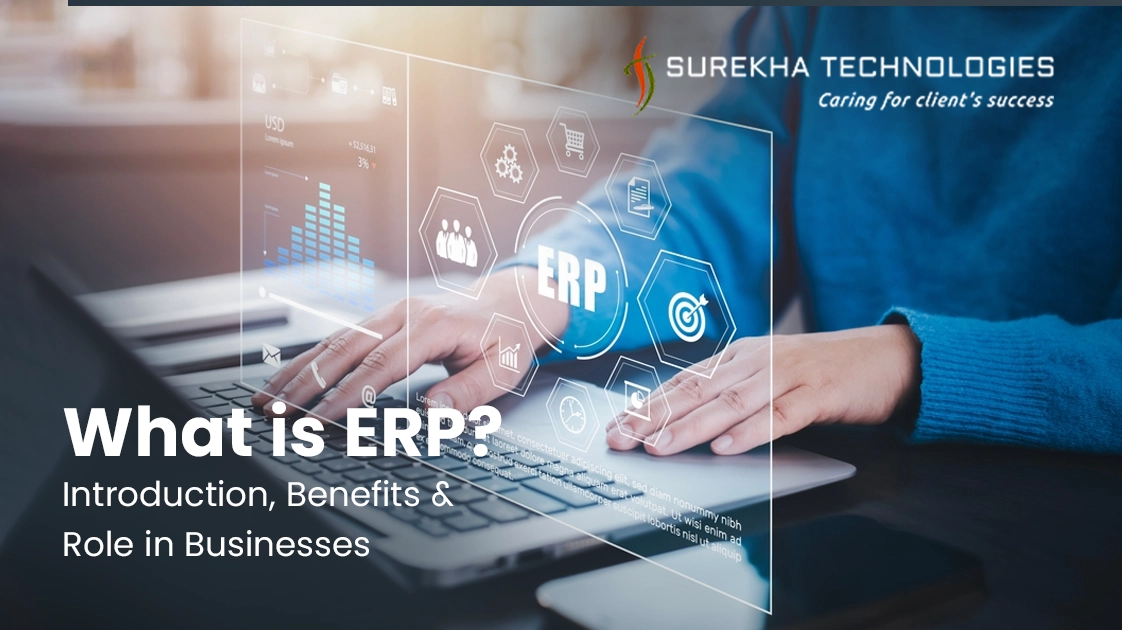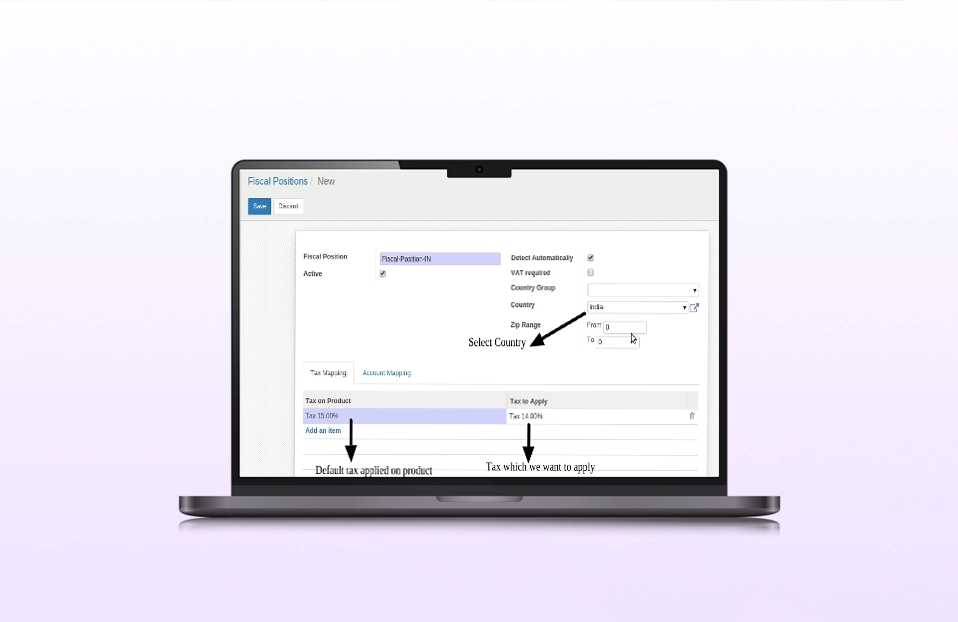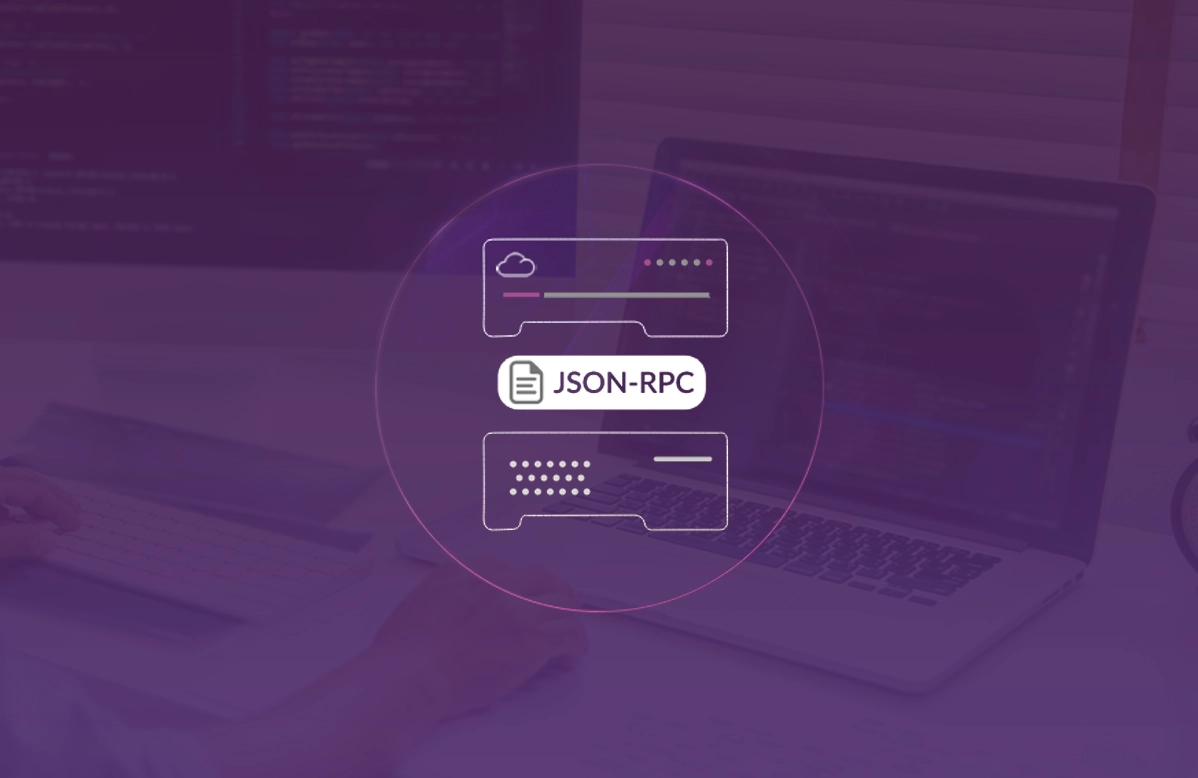Since the mid-90s, Enterprise Resource Planning (ERP) has changed the ways of managing business operations. Yet, it is a question for many; What is an ERP system, and how does ERP system benefit businesses?
Let's dive into this article and find everything you should know about ERP. We have covered its definition, benefits, and its industry-specific solutions that you should consider before an ERP system implementation in your business.
Since we are focused more on understanding it, let's discuss it further to comprehend the concept of ERP systems.
What is ERP?
Consider the critical processes of a business to understand an ERP system. We’d say procurement, production, finance, sales, supply chain, operations, HR, accounting, and more, right?
So, ERP is a system, or a platform, that manages your day-to-day business-critical operations under the same umbrella.
An ERP system integrates multiple business processes and facilitates the flow of information in real time. It collects, arranges, and distributes data to everyone in an enterprise to perform their jobs efficiently.
ERP software interrelates databases between multiple sources and provides a single source of truth across the organization by eliminating the chance of data duplication.
Furthermore, an ERP system can also project, plan, forecast, and outline financial results that describe insight across the business.
Besides, surveys and studies have found that more than 53% of IT Companies prioritize ERP investments, 48% of them plan to upgrade or implement ERP soon, and the ERP software market is expected to exceed the benchmark of $79 billion by 2026.
Definition of ERP
Enterprise Resource Planning (ERP) is the integrated suite of applications or modules in a software or a system that helps enterprises to manage multiple business processes and operations – such as procurement, manufacturing, supply chain, financials, human resources, sales, commerce, and accounting.
Benefits of ERP System Implementation in Businesses
Multiple organizations claimed to benefit from ERP systems. Well, what do you think- how can ERP benefit businesses? So, let’s find out.
Real-time business insight
ERP systems gather information from different processes across the organization, and its single source of truth generates necessary reports. The integrated information provides a real-time and precise understanding of your organizational processes.
Improved collaboration & higher productivity
An ERP system streamlines and automates business operations for everyone and connects them internally. It helps each individual in the organization to perform efficiently as a team with fewer resources.
Reduced operational costs
Implementing an ERP system not only cuts out costs to manage multiple systems, but human labor to operate the same as well. Furthermore, streamlined processes allow businesses to rectify and reduce additional expenses.
Risk management
With improved data integrity and a controlled flow of information, businesses can comply with industry regulations. Also, forecasting reports may help organizations to predict and prevent risk.
Increased efficiency
With well-organized operations, accurate processes, and reduced manual errors, ERP systems can help businesses to be timesaving, labor-saving, and efficient.
Fast-track reports
ERP systems can offer financial, sales, performance, and necessary data in a few clicks. Acting on insights helps organizations to enhance performance and manage risks.
Easier IT
Using an integrated solution for multiple operations to share information and working on the same platform simplifies the IT structures of organizations. It also offers the staff an easy way of working.
Should I use ERP for my business considering its benefits?
As of now, we have discovered benefits of ERP software implementation in modern-day organizations. Also, around 97% of businesses claimed to benefit from ERP systems.
However, the key question here is - will implementing ERP software help your business? Well, implementing ERP software will, of course, help your business to grow in multiple directions. However, choosing the right ERP software is critical. Please feel free to check out our ERP implementation services for further assistance.
The reasons and factors shown below in the graph will help you find the reason to implement ERP in your organization.
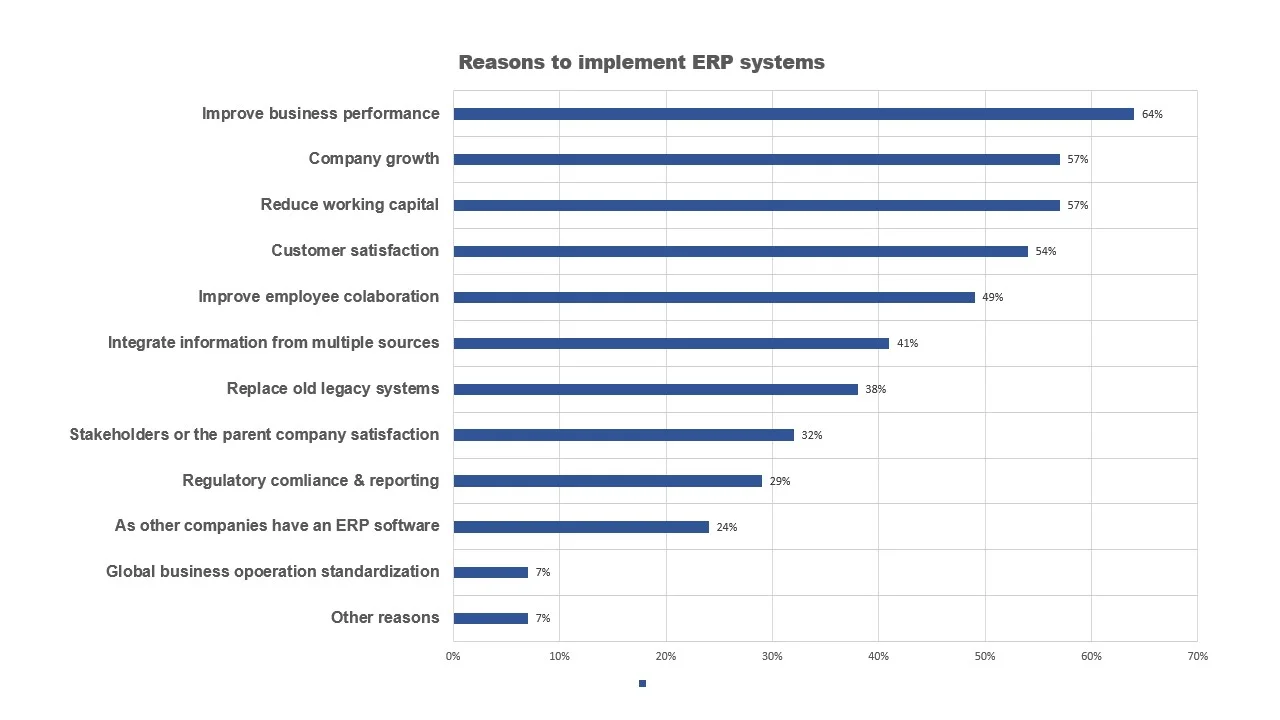
The critical role of ERP in businesses across various industries
Businesses of different sizes from various industries use ERP systems to streamline their operations. Now, we know about the benefits of ERP systems in various business-critical processes, such as accounting, supply chain, reporting, HR, sales, and more.
This section will highlight the benefits and features of an ERP system across different industries.
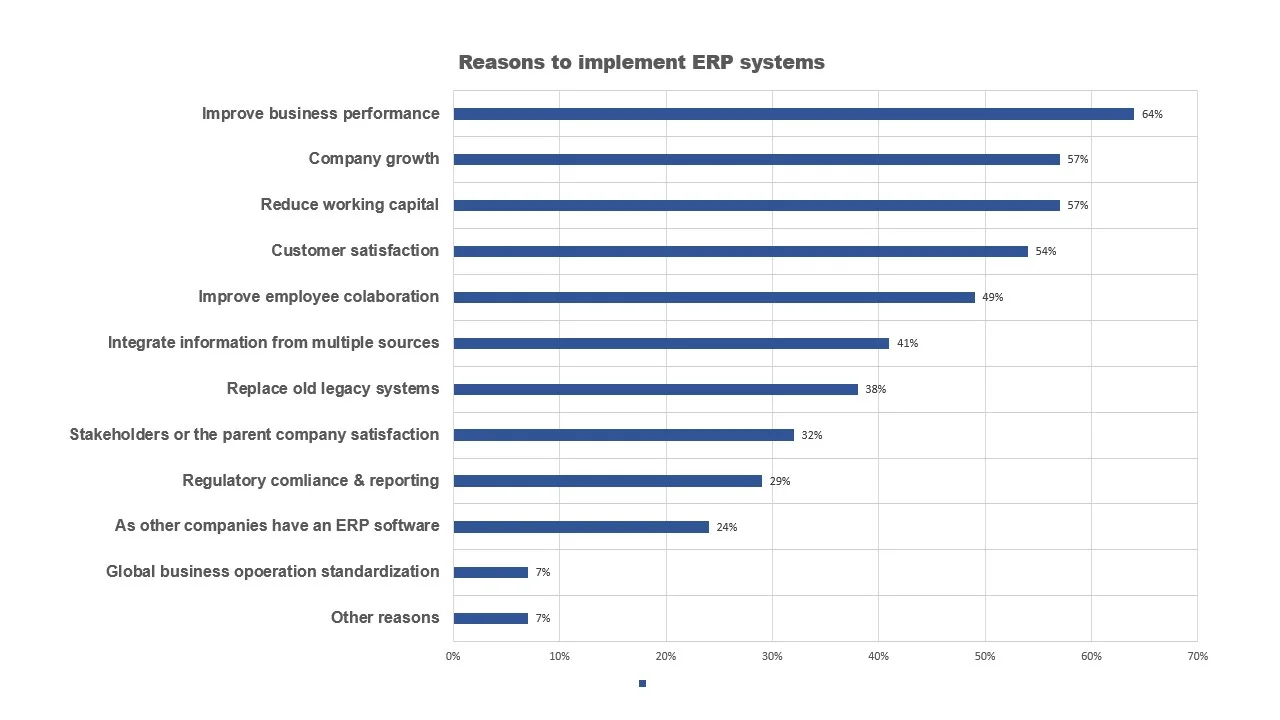
ERP Solutions for Manufacturing Industry
- According to research, manufacturing is the largest industry to use ERP with 47% of total organizations using ERP systems.
- ERP systems can streamline and optimize production processes.
- ERP can help integrate various business-critical processes - such as procurement, production, inventory, sales, and finance.
- An organization can manage its resources & enhance productivity.
- ERP solutions for manufacturing include Tools and modules helpful for Material Requirements Planning (MRP), Manufacturing Execution System (MES), and Product Life-Cycle Management (PLM).
ERP in Real Estate & Construction Businesses
- ERP systems can integrate various functions, like project management, accounting, procurement, and inventory management.
- Managing resources becomes easier with ERP by controlling labor, equipment, and materials.
- Businesses can get real-time insight into the site’s progress, timeline, budget, and more on their devices.
- ERP systems offer risk management in projects, like delays, additional costs, and other problems using analytics.
ERP Implementation Services for eCommerce Companies
- ERP systems help eCommerce businesses to manage sales across multiple channels, such as online marketplaces, social media, and retail stores.
- ERP solutions for eCommerce also let businesses integrate inventory, orders, shipping, and customer data under one umbrella.
- Inventory and warehouse management to reduce the risks of stockouts and overstocking.
- With an ERP system, eCommerce businesses can streamline orders, shipping, deliveries, payments, and customer experience with order management tools.
- Use in-built analytics tools to the recommendation and personalized shopping experiences to the customers.
ERP implementation services in the Retail & Wholesale Industry
- Point of Sale (POS) Solutions: ERP enables retailers and wholesalers to manage their sales and transactions. It lets you manage orders, shipping, sales tracking, and cash flows.
- Customer Relationship Management (CRM) Solutions: An ERP system enables businesses to manage their customer relationships effectively by offering customer interaction insights- such as a purchase history, preferences, and interests.
- Easiness in optimizing stock levels with inventory management tools.
- ERP helps businesses in an efficient supply chain by streamlining processes and reducing lead times. It allows enterprises to increase efficiency, reduce costs, and improve customer experiences.
- With tools for multi-channel sales, retailers can increase their sales through different channels, such as websites, marketplace, and offline sales.
ERP solutions for Healthcare & Life Science Businesses
- With ERP systems, healthcare organizations can streamline operations and integrate patient data and services. Also, it offers easiness in patient onboarding processes.
- Businesses can provide extensive care and services to patients using ERP tools for electronic medical records (EMR) and patient portals. It also offers easiness in patient-provider collaboration through a patient portal.
- ERP systems can help healthcare businesses ensure that rules and regulations are met- such as HIPAA compliance, by securing data and access controls.
- ERP can help life science businesses to manage R&D processes- such as clinical trials, regulatory compliance, and product development.
ERP Solutions for IT & Communication Companies
- ERP software can help IT businesses to manage their complex processes.
- Companies can have real-time insights into ongoing projects, allocated resources, financials, and customer relationships.
- With ERP, businesses can manage the complete project lifecycle - from planning to executing to tracking to evaluating.
- Businesses can get key performance indicators, profitability, resource usage, client expectations, and satisfaction in one unified platform.
ERP Implementation in Education & Training Industry
- Easy onboarding for students, such as enrollment, payments, and joining.
- ERP systems offer students quick access to grades, timetables, leaves, assignments, meetings, and much more.
- ERP systems help to improve collaboration between students and employees.
- HR tools in the ERP system help educational businesses to manage admin tasks, such as payroll, registration, exams, and much more, effortlessly.
ERP Software Solutions for Travel & Hospitality Businesses
- An ERP system helps easy onboarding, such as advance bookings, reservations, and data.
- Businesses can manage resources, such as room inventory, available staff, schedules, vehicles, and more.
- With accounting and financial tools, hospitality businesses can generate reports, such as cash flow, payments, balance sheets, and much more.
- Tools for payments allow businesses to accept payment globally. Also, language support tools allow customers from diverse geographies to access a platform effortlessly.
- ERP systems help travel and hospitality to meet rules, regulations, and regulatory compliance, like taxes, laws, and data protection.
7 Most-Used Business-Beneficial ERP Software Modules
As we discussed earlier, ERP modules have solutions for unique business needs. Each ERP module has a specific function, such as HRM, sales, and accounting. These modules enable the workforce from departments to perform their tasks effectively, individually and as a team as well.
However, a few modules are used more in businesses across various industries. So, Let's look at some of the widely used ERP modules and understand their benefits in organizations.
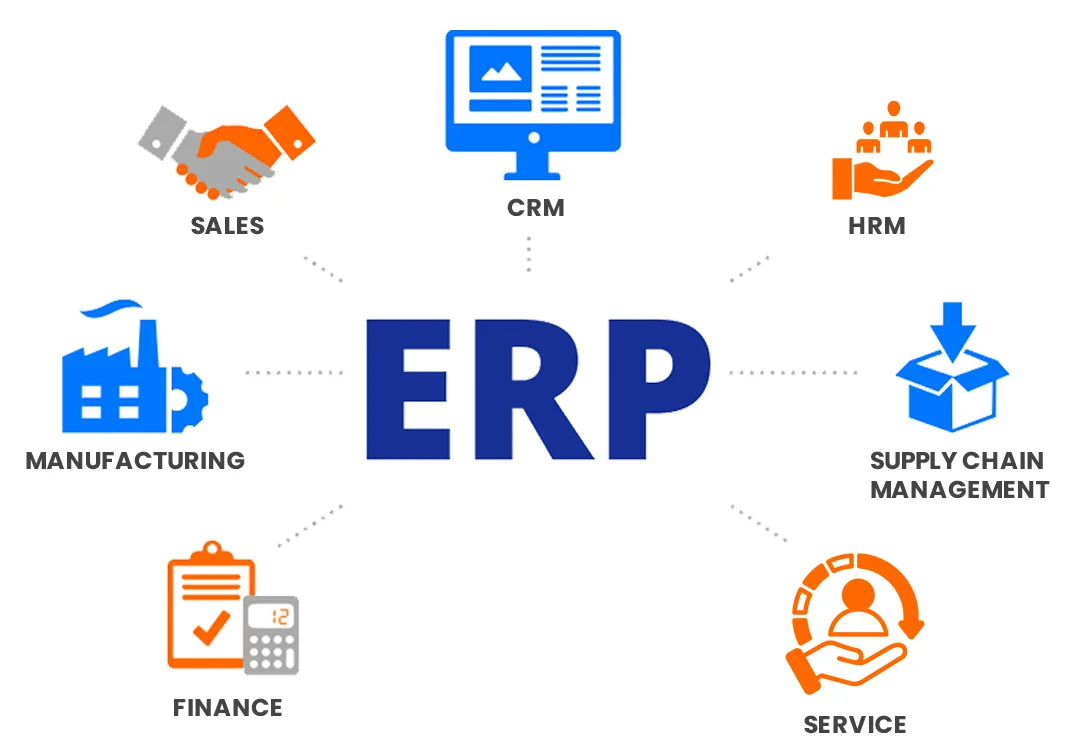
1) Finance & Accounting Module
Finance is the most widely used module in most ERP systems. Apart from general accounting ledger and automated transactions, the module offers many solutions, such as insight budgeting, forecasting, and cash flows.
It also helps with multiple reports, like revenue, account receivable, payables, and profits. Moreover, an ERP system allows businesses to comply with regulatory standards, manage risks, and analyze the market.
2) Manufacturing Module
Manufacturing is the major operation-planning and execution module of the ERP system. The module also offers critical features, such as Material Requirements Planning (MRP), Product Life-Cycle Management (PLM), quality management, and resource planning.
It helps businesses simplify complicated production operations and ensure demand fulfillment with real-time insight into processes.
3) Sales Module
Most of the businesses across multiple industries use the sales module. ERP systems cover order management features that help organizations track orders, shipping, billing, and payments.
With a sales module, businesses can also get reports for leads, inquiries, sales team performance, conversion ratios, customer behavior in buying, and much more under the same software.
4) Module for Customer Relationship Management (CRM)
With ERP modules for CRM, businesses can manage customer data and engagements, such as sales, marketing, and customer support.
ERP systems with CRM also help organizations to strengthen customer, as well as B2B relationships.
5) Human Resources Management (HRM) Module
Most businesses prefer HRM solutions in an ERP system for timesheets, leaves, and payrolls.
With HRM modules, businesses manage easily manage human resources, such as employees, training, recruitment, employee benefits, performance, feedback, instant support, IT tools, and much more.
6) Supply Chain Management Module
ERP can help supply chain businesses in integrating and streamlining multiple business-critical processes, such as procurement, inventory management, warehouse management, transportation, distribution, and logistics.
An ERP system module helps businesses to improve resilience and efficiency in supply chain management.
7) Service Modules
Businesses using ERP systems can offer reliable experiences not only to customers but employees as well. Tools for repairs, exchanges, refunds, timesheets, tickets, performances, and many more can offer both customers and employees a satisfying experience.
These are just a few examples of commonly used ERP modules in multiple organizations. Well, businesses can use other ERP modules according to their unique needs. Nevertheless, the modules discussed above are the backbone of ERP systems.
Conclusion
Growing businesses in multiple industries have led to growing organizational complexities. Institutes can take a competitive advantage by using an ERP system, which is scalable, reliable, and customizable according to their unique business challenges.
Our reliable ERP implementation services and solutions can help you to streamline business-critical operations, increase productivity, and improve ROI on technology spending by streamlining critical business operations, such as procurement, manufacturing, supply chain, financials, HR, sales, and accounting.
As per our research and recommendations, Odoo is a comprehensive open-source ERP solution for all your business needs and challenges. We are a certified ERP software development company and can help you achieve digital transformation goals. Please don’t hesitate to contact us and unleash the true potential of your business with us.
